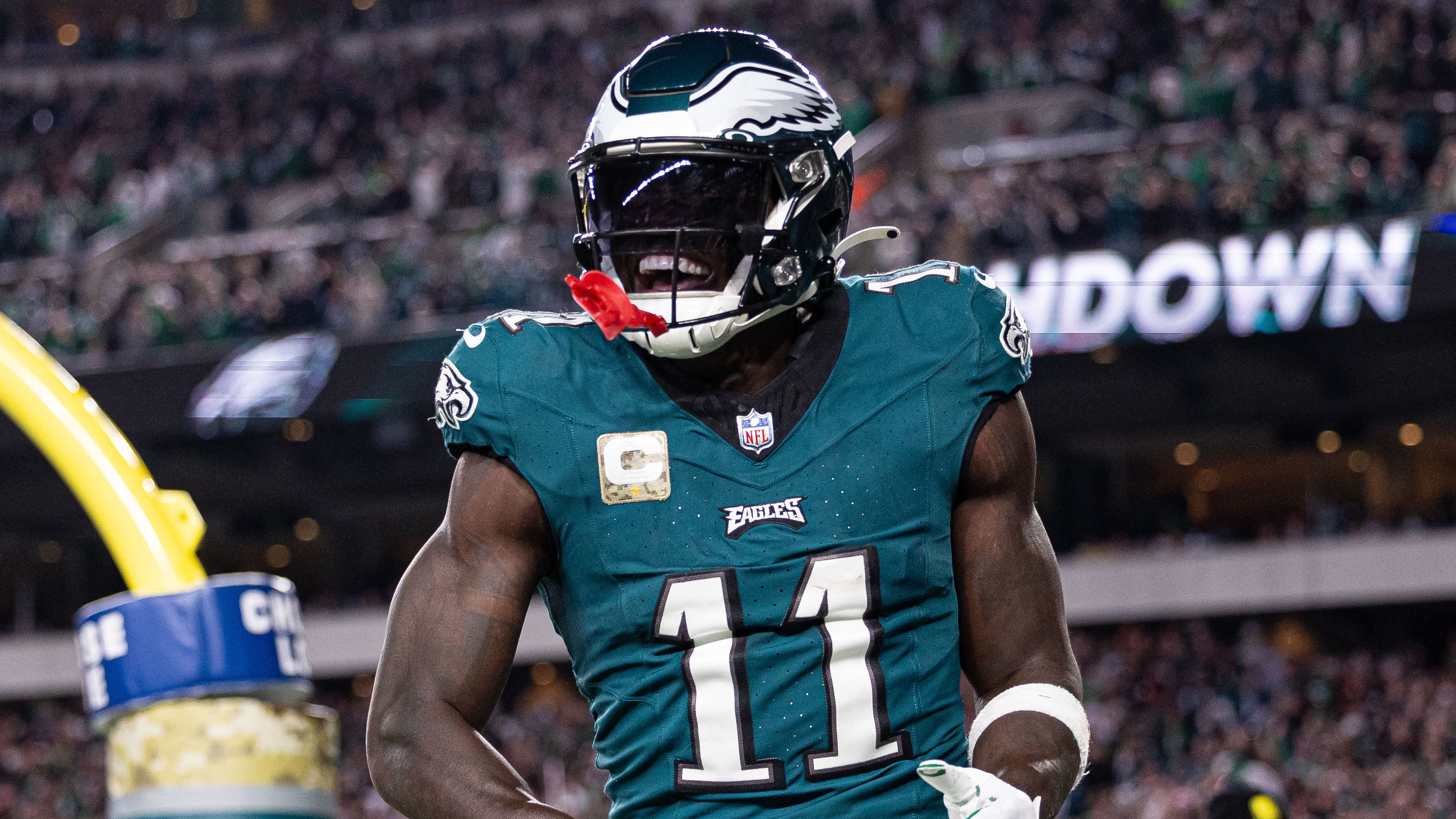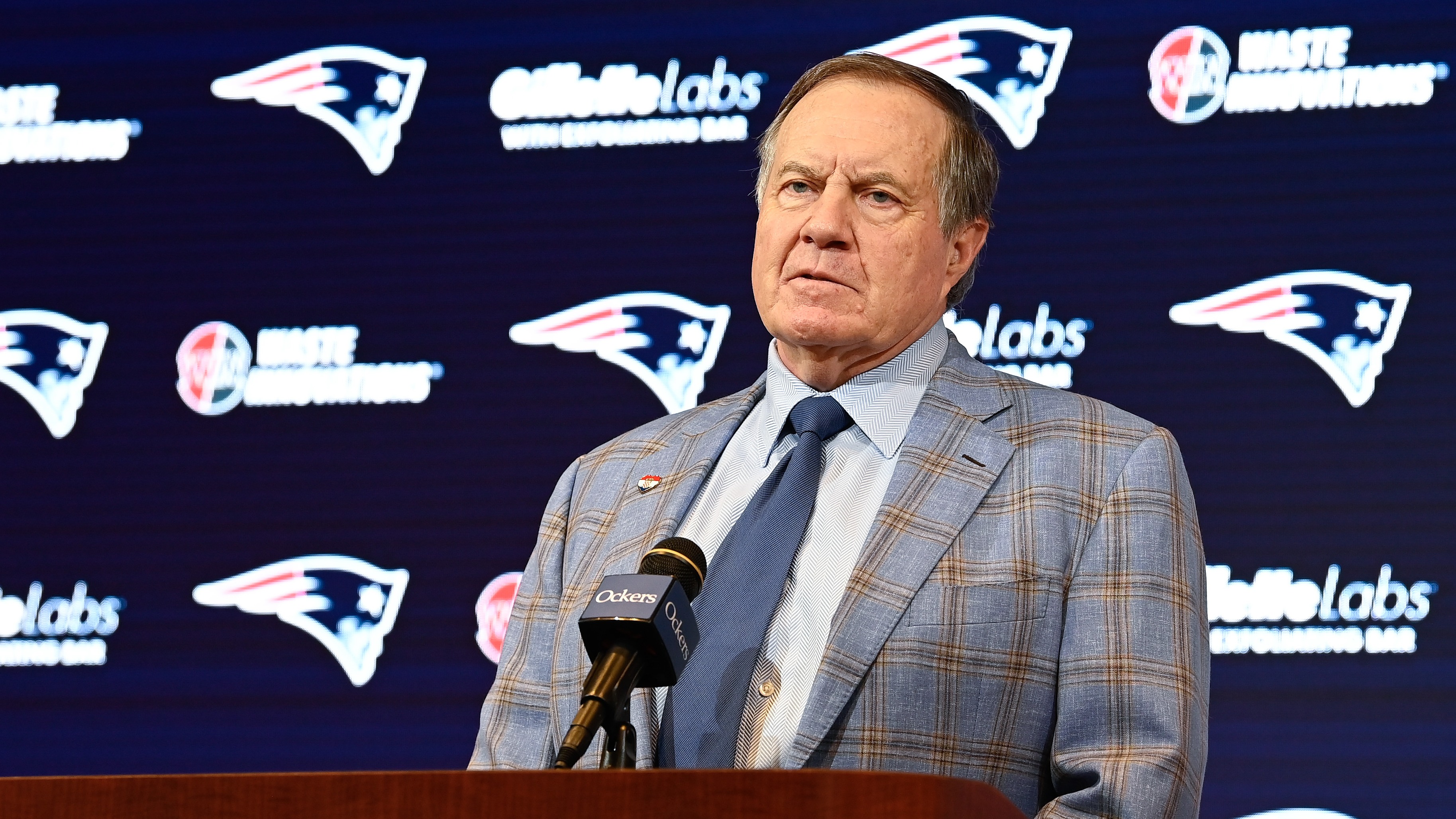
When Marquis Flowers first arrived Gillette Stadium back in August, acquired by the Patriots via trade with the Bengals, he was in awe.
"This is like an all-star special-teams unit, man," Flowers said to himself. "Every guy in here is capable of making plays. They have made plays, and they'll continue to make plays . . . Who are teams going to block? How are they gonna go against us? How are they going to go against this?"
MORE PATRIOTS
- For Belichick, speaking to Navy football team 'an honor'
- Out of thin air, differences emerge between Patriots and Raiders
- Does Gronk have a shot at maximizing 2017 contract incentives?
Special teams may be the under-appreciated art of our country's most closely-scrutinized sport, but those who are considered kicking-game specialists follow their peers around the league almost obsessively. That's why Flowers was so struck when he joined special teams coach Joe Judge's meetings.
He sat with players like Matthew Slater, Nate Ebner, Brandon Bolden and Brandon King. He was reunited with former Bengal Rex Burkhead, one of Cincinnati's best special-teamers. Flowers would later be joined by other newcomers from around the league he'd watched before like Johnson Bademosi and Cassius Marsh.
He'd studied these guys, he knew their reputations, and he quickly understood what they could be as a group. His prediction that they would make plays has already come to fruition many times over.
Sitting at 7-2 through 10 weeks of the regular season, what the Patriots have done on special teams has made that phase of the game arguably their most consistent one. They are second in the league when it comes to opponent starting field position (24.82), behind only Kansas City (24.68), according to Football Outsiders. They are allowing 19.2 yards per kick return (fifth in the league), and 5.3 yards per punt return (seventh).
Against the Broncos last weekend, Patriots special-teams units won them the game. A turnover on Denver's first punt return of the night . . . A 103-yard kickoff return for a touchdown by Dion Lewis . . . A blocked punt . . . All momentum plays, all occurring in the first half, one shovel full of dirt after the next, burying the Broncos under the weight of their own mistakes.
That the Patriots were able to take advantage of those missteps had Bill Belichick -- an assistant special teams coach for the Broncos in 1978 -- beaming in his weekly breakdown of big plays on Patriots.com.
"We certainly got a lot of big plays out of these units," he said. "Those guys work hard. They really deserve all the success they get."
Over the course of his nearly seven-minute breakdown of four first-half special teams plays, Belichick recognized more than dozen different players: Flowers, Burkhead, Slater, Ebner, Lewis, Bolden, King, Bademosi, Jacob Hollister, Jonathan Jones, Jordan Richards, Dwayne Allen, James Develin, Trevor Reilly and Stephen Gostkowski.
Many of those players are seldom (if ever) used offensively or defensively, but it's long been part of Belichick's team-building philosophy to carry special-teams specialists. Even as the number of impactful kicking-game plays are being reduced -- with new rules put in place in the name of player safety -- the Patriots have seen that approach pay dividends.
New England Patriots
Opposing coaches have taken notice as well.
"I think they've got excellent personnel," said Raiders coach Jack Del Rio. "They keep several spots specifically for special-teams roles, and guys like Nate Ebner, and Matt Slater, Brandon King, these are guys that show up that don't necessarily play a role defensively or offensively, but they certainly show up on special teams.
"Both of their returners are really good as well. Their kickoff return last week against Denver . . . really was a huge momentum play in the game. To me, they obviously put a lot of emphasis in that area, and it certainly paid dividends last week when they dominated the game. A large part of that was on special teams."
Glance up and down at the list of Patriots special-teamers, a list that has often included practice-squadder Geneo Grissom in recent seasons, and a few traits stick out: Size and speed. But experience and on-the-fly intelligence have taken this assembly of athletes and turned them into a weapon.
Even young players, like Jones (second season) and King (third) have established reputations. Teams know if they're not accounted for, they can ruin plays. But at the same time, not everyone can be doubled.
It's a problem.
"With so many guys out on the field that are so productive, it helps," King said. "Sometimes they're running away from people to get to me to make a play. Sometimes I get double-teamed. Sometimes someone else gets double-teamed, and it singles me up. Having so many productive players on the field really helps out the whole coverage unit. There's so many things we can do to keep teams on their toes."
Despite having so many first-year Patriots playing such key roles in the kicking game, under the tutelage of Judge and his assistant Ray Ventrone, the communication on their coverage units has become relatively seamless.
King explained that there are times when a return unit will change it's pre-kick look, and if one coverage player recognizes it before the rest, he will be able to get it communicated down the line -- even after they've all taken off in a dead sprint down the field.
"We'll be playing one play when the ball is kicked but playing something totally different when we're 20 yards down the field," King said. "I've never been anywhere where you can actually do that."
One of the unit's best communicators, it's captain, Slater, left the Broncos game with a hamstring injury that's expected to force him to miss time. But even with Slater out, the experience level of the group is such that some of the non-verbal back-and-forth coverage players take part in shouldn't fall off.
Bademosi, a core special-teamer for five years in Cleveland and Detroit before arriving in New England, will likely play a role in filling in for Slater when it comes to covering kicks and punts.
"There really is a lot of communication on those plays," Belichick said. "Not a lot of it is verbal. It’s just visual recognition so that two or three of us running down the field together, we see the same thing and we know how we’re going to react to it, how I’m going to react to it, how the guy beside me is going to react to it so that you have the lanes covered and you defend the return they’re trying to set up. There’s definitely a lot of, let’s call it visual communication on those plays . . .
"The players that are on that team -- [Judge] and [Ventrone] have done a great job with them and given them the awareness of the blocking schemes and the types of returns we’re going to face and given them opportunities to work off of each other to try to create space in the coverage so that we can get down there and try to penetrate. Those guys have worked hard at that. They do a lot of extra things on their own . . . They’ve played well for us all year. Our field position on those plays has been outstanding."
The Patriots have made an investment. Gostkowski is one of the highest-paid kickers in the league due in part to the fact that he's able to drill well-placed kicks that encourage returns. The number of roster spots committed to "teams" is rare. And when it comes to practice time, the kicking game doesn't get squeezed.
That's evident at training camp when large portions of practice are devoted to kickoffs, punts and returns, and Judge can be heard from across the field coaching things the way he learned them from Belichick and former Patriots special teams czar Scott O'Brien.
"People like to forget about special teams," Flowers said. "We don't. Special teams is huge, man. It's a game-changing and momentum-changing play. You only get one shot at it. It's a huge. It's part of the game. That's why when you win in all three phases, you win big."


